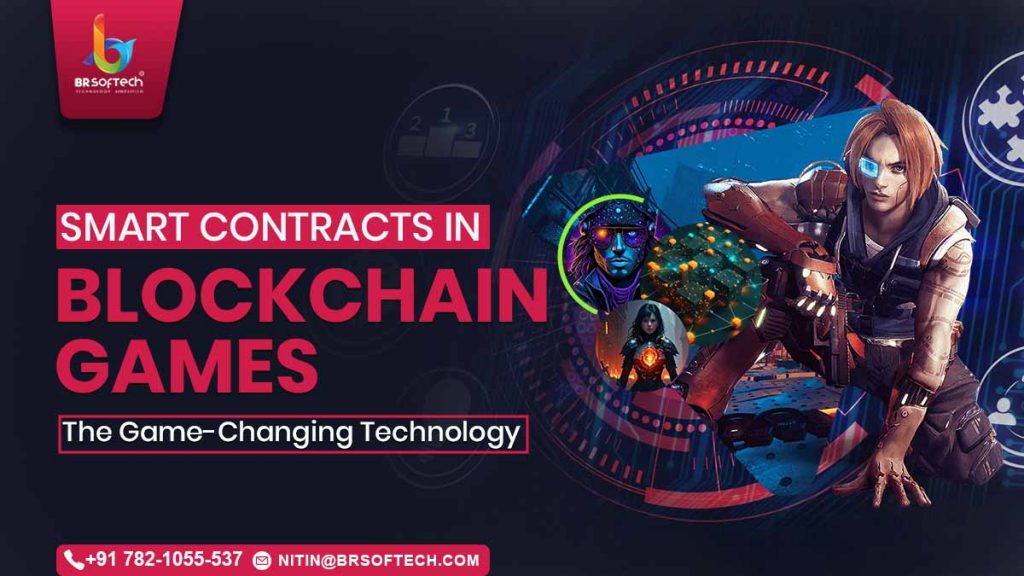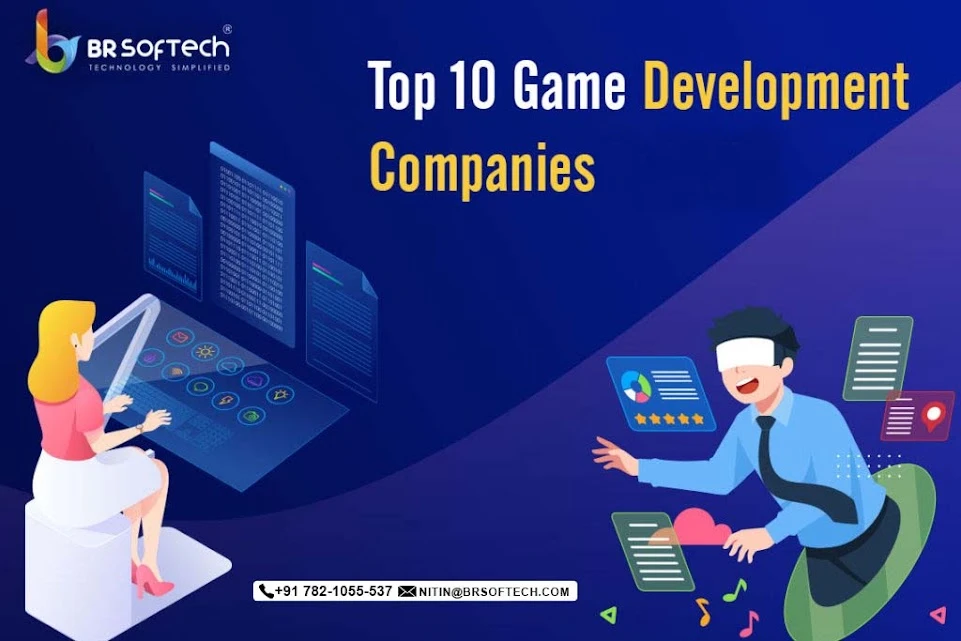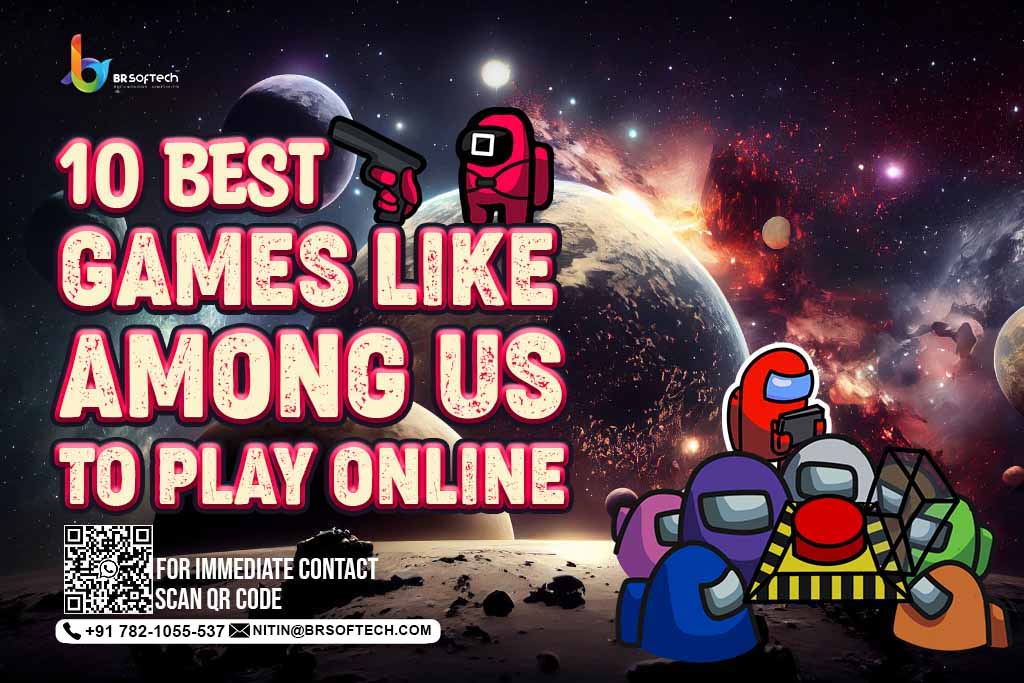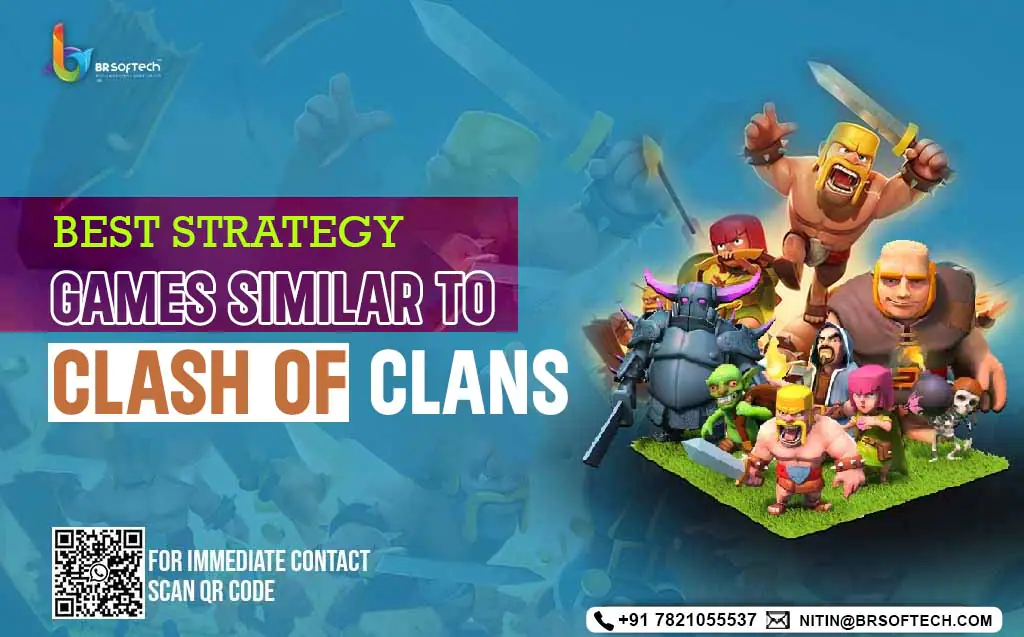Transparency, security, and decentralized ownership of digital assets are the unique selling points of blockchain technology, and it is the primary reason behind the technology’s success in the gaming industry.
The ultimate security, transparency, and credibility have helped in the rise of blockchain gaming technology which has been shaping the gaming industry for some time now. At the core of this transformation are smart contracts in blockchain games, which are responsible for automation, trustless transactions, and revolutionary monetization models.
What Are Smart Contracts in Blockchain Games?
A smart contract is a self-executing contract stored on the blockchain that does not require intermediaries to enforce terms and conditions, it works on a pre-set code system. In blockchain-based games, smart contracts are responsible for game mechanics, in-game transactions, and asset ownership. They ensure that gaming outcomes are fair and that transactions are tamper-proof.
Key Features of Smart Contracts in Blockchain Games
We’ve learned that smart contracts play a big role in blockchain games, in this section we will learn about all the key features of smart contracts in detail.
Transparency
Transparency is one of the key features of smart contracts in blockchain games. All contract rules and transactions are recorded on the blockchain through smart contracts, which makes them visible and verifiable by all participants.
Automation
Multiple transactions such as asset transfers, reward distributions, and game logic execution occur automatically based on pre-defined conditions. These conditions make sure that the asset is allocated to the buyer and funds are transferred to the seller.
Security
Non-fungible tokens in blockchain games are immutable, and decentralized storage prevents fraud, hacking, or data manipulation. Therefore, all your belongings in blockchain games are truly yours and no one can copy the assets.
Trustless Environment
Players don’t need to trust a centralized entity since the game logic is controlled by smart contracts. These contracts cannot be manipulated or modified, cutting the chances of fraud. Hence, there is no point in talking about trust in blockchain games because of smart contracts.
Interoperability
Smart contracts can facilitate cross-game and cross-platform asset usage. It supports an open gaming ecosystem as your assets can be traded on NFT marketplaces like OpenSea. You can use one in-game asset in another game thanks to interoperability.
Also Read: Benefits of Integrating OpenSea into Blockchain Games for Developers & Players
How Blockchain Gaming Technology Enhances Gaming
The integration of smart contract gaming in decentralized gaming platforms provides several benefits. The majority of the advantages are listed below.
1. Decentralization and True Ownership
Traditional games had invaluable assets in the real world. The assets used to be stored on centralized servers. On the other hand, blockchain-based games allow players to own their in-game assets as NFTs (Non-Fungible Tokens), which hold real-world value.
- Players have complete control over their digital items
- Assets can be traded, sold, or transferred outside the game ecosystem
- Developers cannot alter or delete player-owned items arbitrarily
2. Play-to-Earn (P2E) Economy
Blockchain gaming technology has introduced Play-to-earn (P2E) games, which allow players to earn cryptocurrency or NFTs by participating in in-game activities. Through P2E games, users can earn rewards that help them build a credit portfolio. Moreover, these games provide incentives just through engagement, and it has opened doors of income streams for developers and players alike.
- Earning real-world value by playing games
- Incentivizing user engagement and retention
- Enabling new income streams for gamers worldwide
3. Security and Fair Gameplay
Smart contracts in blockchain games ensure fair and transparent gameplay. No asset is lost or no one can erase your assets from the game because of the decentralized gaming servers. No rigging can be done in your gameplay, providing a safe and trustworthy environment for your gameplay sessions.
- Game outcomes cannot be manipulated by centralized entities
- Players can verify game mechanics before participating
- No risk of fraudulent transactions or asset theft
4. Immutable and Interoperable Game Assets
Assets won, achieved, or bought in blockchain games cannot be altered or removed once added to your inventory. Moreover, your assets are interoperable, meaning you can sell a sword earned in one game to a player in another game.
- Immutable game assets
- Blockchain-based games can allow asset interoperability
The Role of Ethereum Smart Contracts in Gaming
Ethereum is the leading blockchain for smart contracts. It plays a crucial role in crypto gaming platforms as it enables outstanding security and transparency. Moreover, through Ethereum, you can seamlessly integrate decentralized finance in gaming (DeFi in gaming).
- Secure and transparent in-game economies.
- Automated transactions using ERC-20 (fungible tokens) and ERC-721/ERC-1155 (NFTs) standards.
- Seamless integration of decentralized finance (DeFi in gaming) features, such as staking and lending.
Game-Changing Blockchain Solutions in the Gaming Economy
The fusion of blockchain gaming technology with decentralized finance (DeFi) in gaming opens up new possibilities like players making monetary benefits from the game. Players can even leverage their assets for loans.
- Yield farming and staking – Players can earn passive income by staking in-game tokens.
- In-game lending and borrowing – Players can take loans against their game assets.
- Decentralized marketplaces – Peer-to-peer trading of game items without intermediaries.
Challenges and Future of Blockchain-Based Games
While smart contracts in blockchain games offer numerous benefits, there are a few challenges like scalability, complex user experience, and regulatory uncertainties.
- Scalability Issues: High transaction fees and slow processing times on networks like Ethereum.
- Complex User Experience: Players need to manage crypto wallets and private keys.
- Regulatory Uncertainty: Varying legal frameworks for crypto and NFT gaming.
The Future trends in blockchain gaming may include full integration of AI and AR technologies. More possible trends are listed below.
- Layer 2 Solutions & Alternative Blockchains – Networks like Polygon and Solana offer faster and cheaper transactions.
- AI and Smart Contracts Integration – Enhanced automation and AI-driven game logic.
- More Adoption by Traditional Game Studios – Major gaming companies are entering the blockchain gaming technology space.
Conclusion
The rise of smart contracts in blockchain games is bringing a myriad of changes in the gaming industry as it introduces decentralization, transparency, and innovative monetization models. With advancements in blockchain game development services, we can expect the industry to continue evolving, offering players a more secure and rewarding gaming experience. As the adoption of the game economy on blockchain grows, the future of gaming looks more decentralized and player-driven than ever before.
FAQ
Q1. What are smart contracts in blockchain games? Ans: Smart contracts in blockchain games are self-executing programs that automate in-game transactions, asset ownership, and game mechanics on the blockchain. They are responsible for the utmost security and transparency in blockchain games.
Q2. How do smart contracts enhance blockchain gaming technology? Ans: They provide transparency, security, automation, and a trustless environment, ensuring fair gameplay and decentralized ownership of assets.
Q3. What is the role of Ethereum smart contracts in gaming? Ans: Ethereum smart contracts enable secure transactions, NFT integration, and automated economy management within blockchain-based games. It is considered as one of the best platforms for blockchain.
Q4. How do play-to-earn (P2E) games benefit players? Ans: P2E games allow players to earn cryptocurrency or NFTs by participating in game activities, creating real-world value. These assets can be sold or traded among players as they build virtual economies.
Q5. What challenges do blockchain-based games face? Ans: Key challenges include scalability issues, complex user experience, and regulatory uncertainties in the crypto and gaming sectors.












